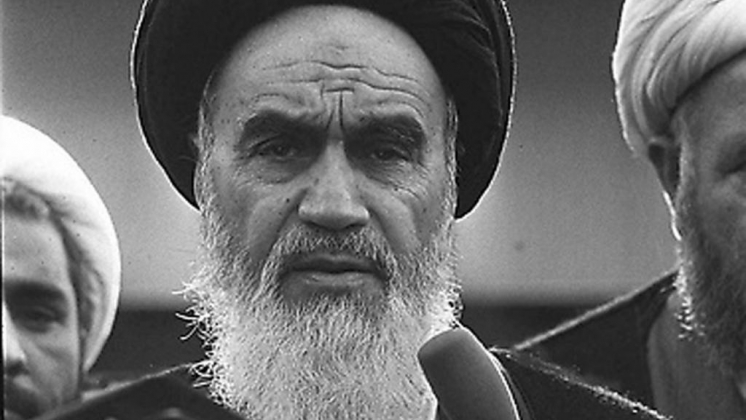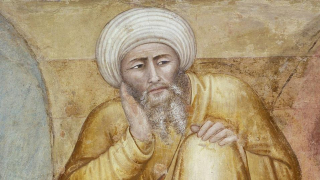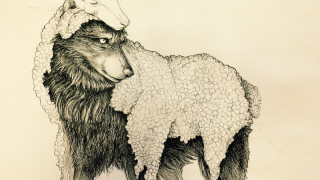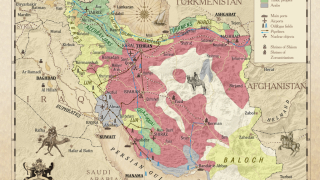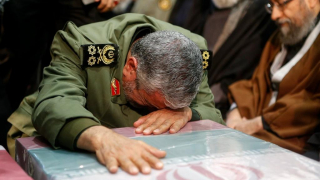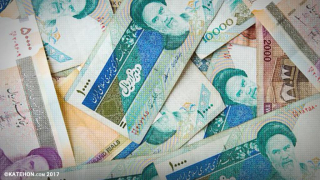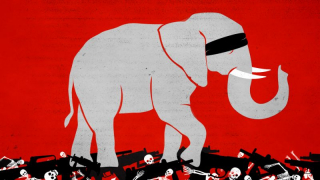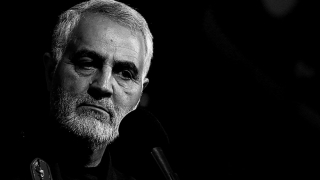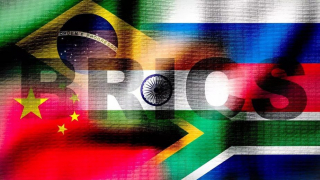The shadow of Khomeini on the Middle East: 40 year later
03.07.2019
Iran ranks first among the rivals in the Trump administration's foreign agenda. To understand the reasons for this clash that has been going on for decades, we interviewed Hanieh Tarkian, professor of Islamic studies at the Institute of Islamic Studies al-Mustafa in Rome.
Iran, China, Russia, these are the three main objectives of the Trump administration's foreign agenda. China pays the inevitable price of having wanted to openly challenge the American empire by launching its own Eurasian hegemonic design, Russia is a natural rival condemned by its own dimensions to endless containment, while Iran poses a threat to be subdued since before the Pahlavi dynasty.
It is no longer a question of protecting US interests in the Middle East as in the times of the two-pillar policy, but of defending the national interests of key US allies in the area: Israel and Saudi Arabia. It is a question that surpasses Tehran's atomic ambitions and touches the sphere of geophilosophy and geopolitics: natural resources, development potential, demography and cultural factor, make the country, if autonomous from Western control, a threat to the balance of regional power.
The Obama administration had tried to stop the situation through a nuclear agreement agreed with the European Union, which for a certain period guaranteed economic breathing to the country and partial diplomatic re-accreditation in the international arena, but which had not been digested at all by Riyadh and Tel Aviv. The Trump administration has seized the discomfort of the two allies, opting to tear up the agreement and restore a harsh sanctioning regime, spiced up with provocations, false flag operations, and military encirclement.
Despite the difficult situation, attempts to provoke colored revolutions and regime changes within the country have failed over the years, a sign that the majority of the population is still firmly faithful to the ideals of the Khomeini revolution. For the Trump administration, therefore, the match against Iran turned out to be more difficult than expected.
To understand how the population of one of the countries most long sanctioned in recent history lives the revolution 40 years after that 1 February 1979 when the Ayatollah Ruhollah Khomeini reached the crowded Tehran airport and intending to end the imperial experience, we interviewed Professor Hanieh Tarkian, acculturated in Qom (Iran) and an Iranian issues expert and holder of the master's degree in Islamic studies at the Institute of Islamic Studies al-Mustafa in Rome.
2019 marked the 40th anniversary of the Iranian revolution. How are the Khomeinist ideals perceived many years later, above all by the new generations, who were born after that event?
To be able to answer this question it is necessary to keep in mind that the Islamic Revolution of Iran has its roots in the values of Iranian society, values linked to Iranian religion and culture, but at the same time to the intrinsic nature of the human being, since the Islamic revolution supports a vision of Islam based on values that all human beings accept, in particular justice and the fight against oppression, therefore universal values and that certainly new generations also share.
Undoubtedly the Islamic Republic of Iran must still take great steps to form a society in which these ideals are in fact achieved; nevertheless, in these forty years, Iran has made considerable progress in many fields, in fact it is considered today one of the most influential countries in the region and in international relations, and has inspired many movements for the liberation of peoples such as Hezbollah in Lebanon and Ansarullah in Yemen. And also at the level of internal politics, observing the demonstrations in support of the system that take place on various occasions, such as for example the anniversary of the victory of the Revolution, in which millions of people participate, or taking into account the turnout in the elections which is around an average of 62%, we can say that the system still enjoys the support of the majority of the people, including the new generations.
How are revolutionary values infused in Iranians?
Family is, in the Islamic and revolutionary vision, the fundamental nucleus of society and therefore also the main channel of transmission of values, for this it is particularly important to strengthen and support the family, both from an economic and cultural point of view and, for this purpose, support policies are adopted. Obviously the influence from the outside cannot be denied, it happens through a real cultural invasion, however a careful observer, comparing for example the presence of families and young people in religious ceremonies of twenty years ago and the current presence, can easily to understand how this has increased and religion, the fulcrum of the Islamic Revolution, has become an integral part of life, even of those who may not practice constantly.
In the United States an analysis of the NY Times entitled “Iran and the United States: doomed to be enemies forever?” has fueled a very interesting debate. Even without the advent of Khomeini, and even without the Ajax operation, it is argued that something would have happened that would have damaged relations with the West, because the harsh law of history seems to condemn Iran to the eternal clash with the West. What do you think of this thesis?
In my opinion, any free people aspire to rebel against oppression and foreign interference, yet they must have the strength to rebel and must be motivated. The Iranian people have found this strong motivation in religious values, so I would not speak of an Iran / West conflict, but of an intrinsic force present in all peoples that leads them to aspire to justice and to fight against oppression - in this case the oppression perpetrated by the globalist system to the detriment of the people in favor of an elite. From this point of view, it may be that there are peoples or contexts that encourage rebellion against the system, as happened with the Islamic Revolution of '79.
The Ajax Operation played a fundamental role in the establishment of a strong sense of hostility towards Western imperialism, marking a watershed in the history of the Middle East. What is the cultural heritage of that steered coup and how is the historical memory kept in the people?
This operation demonstrates a fact: Western imperialism is enemy of any people, even if not ideologically oriented, which seeks to obtain independence and freedom from the system of globalist oppression. Therefore, for the strong powers is not relevant the fact that Iran is an Islamic Republic, so much so that at the time of the Ajax Operation it was not, but the problem lies in the fact that this Islamic Republic pursues independence from the globalist system and self-sufficiency in the economic field. Any people or country that pursues these ends will be considered an enemy by the imperialist countries and, in fact, if you notice, countries defined as “rogue countries” by the globalist system, are precisely those that pursue freedom and independence.
Iran is currently a threat to the regional interests of the United States, Israel and Saudi Arabia, and for this reason it is fighting long-distance wars and experiencing a harsh sanctioning regime. About the latter, what is the impact of sanctions on the economy and everyday life of Iranians?
Sanctions are actually a real weapon to put pressure on a people that does not want to adapt to the globalist system and force them to accept negotiations that are normally a disadvantage for that people and country; bind them to the globalist system (this is the case of the agreement on nuclear power). Usually, to suffer the deepest negative consequences are poor and middle class, that is precisely those classes that supported the Revolution, as repeatedly emphasized at the time by the Imam Khomeini. The sanctions against Iran have repercussions on all aspects of Iranian daily life, but probably the medical one is the area that suffers the most profound and serious impact, especially as regards the importation of specific drugs, and certainly from the point of view of international law and respect for human rights is deplorable. If we also add that sanctions are usually supported by those international institutions that criticize Iran and accuse it of violating human rights, the frame is complete.
***************************
Original column by Emanuel Pietrobon:
Translation by Costantino Ceoldo – Pravda freelance

